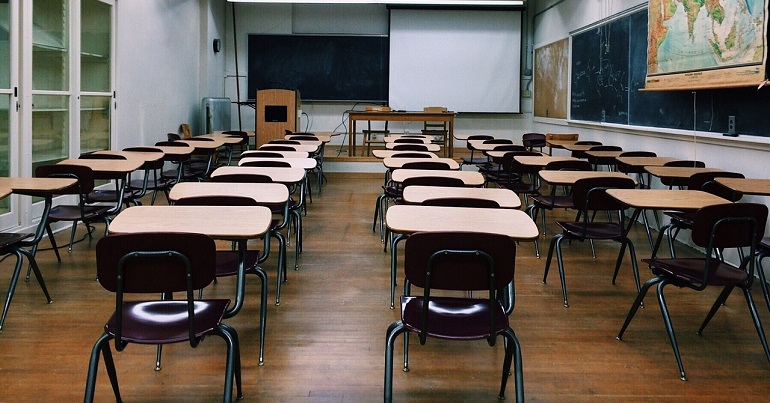The government’s handling of school qualifications is leaving students like me in the dark

As COVID-19 case numbers rose in the UK back in March, the cancellation of exams still seemed like an impossibility. Yet, here we are, awaiting grades and facing the very real prospect of failing papers we did not sit. Exam boards, like the rest of us, found themselves in an unprecedented situation – yet we cannot allow statistical limitations and educational inequalities to define results day.
News from Scotland last week of thousands of the most disadvantaged students seeing their grades devalued was a warning sign. The Scottish Qualifications Authority’s (SQA) moderation saw the number of A-C grades reduced by 6.9% for pupils in the top 20% of the income distribution, yet those in the bottom 20% saw this fall by 15.2%. Thankfully, the Scottish Government has since reversed this.
With England and Wales also using student rankings and schools’ prior results in determining grades, it looks likely we will see a replication of this injustice. We cannot forget that this year’s A-Level cohort were also the first to sit a full set of the new GCSEs in 2018, a major factor in the reopening of the attainment gap between high and low income students.
In human terms, the cost of inequitable qualifications is a loss of future jobs, university places and, importantly, self-belief. When we allow postcodes to define success, we waste the potential of thousands of aspirational, dedicated students who haven’t had achievements handed to them and are all the more admirable for it. Wealth should not be able to buy superior education, yet the Office for Qualifications (Ofqual) have left the door wide open to this. For students like me, access to support in preparing to potentially resit exams in the Autumn or go through the clearing process is guaranteed to vary depending on the resources your school and college has at hand, with deeply unjust consequences.
The report from the Times Educational Supplement that 60% of teacher-assessed grades have been disregarded at A Level is concerning. Teachers know their students as individuals and understand their capabilities better than a statistical model alone possibly could. Ofqual has insisted in response that students’ final grades will be calculated ‘using both centre assessment grades and a rank order of students provided by the centre.’ However, it stopped short of denying that TES’ sources were sound and did not explicitly reject its depiction of the process Ofqual and the exam boards have followed to produce this summer’s results. They have not published full details of the moderation process for clarification, which have been tightly guarded and will not be released until results are known.
Young people are scared of what Thursday will bring, and this lack of clarity and obvious inequalities only magnify this. For others like me hoping to go to university, the thought that anything other than our hard work might factor into this eventuality is troubling. For those getting GCSE results, attaining a C grade in English and Maths is often essential in securing employment and security later in life. These futures must not fall victim to a statistical exercise which refuses to factor in individuals’ achievements or our teachers’ expertise.
Later this week the full impacts on students like me will become clear. Ahead of Thursday morning, it is absolutely essential that the secrecy and spin around grades and moderation comes to an end. Teachers and students alike need and deserve full clarity on the models used for calculating grades, how the model was reached and with whose oversight. We also have a right to know what has happened to our individual grades, whether and how they emerged from teachers’ assessments. Most of all, teachers and students need a transparent, credible path to get redress for any problems with our grades. When Thursday comes, we need the options ahead of us to be crystal clear so we can do what’s best for our futures.
The very least that Ofqual and the government owe us is transparency – and a firm commitment that, as Gavin Williamson promised in March, “no young person faces a barrier when it comes to moving onto the next stage of their lives.”
PS. We hope you enjoyed this article. Bright Green has got big plans for the future to publish many more articles like this. You can help make that happen. Please donate to Bright Green now.



Leave a Reply